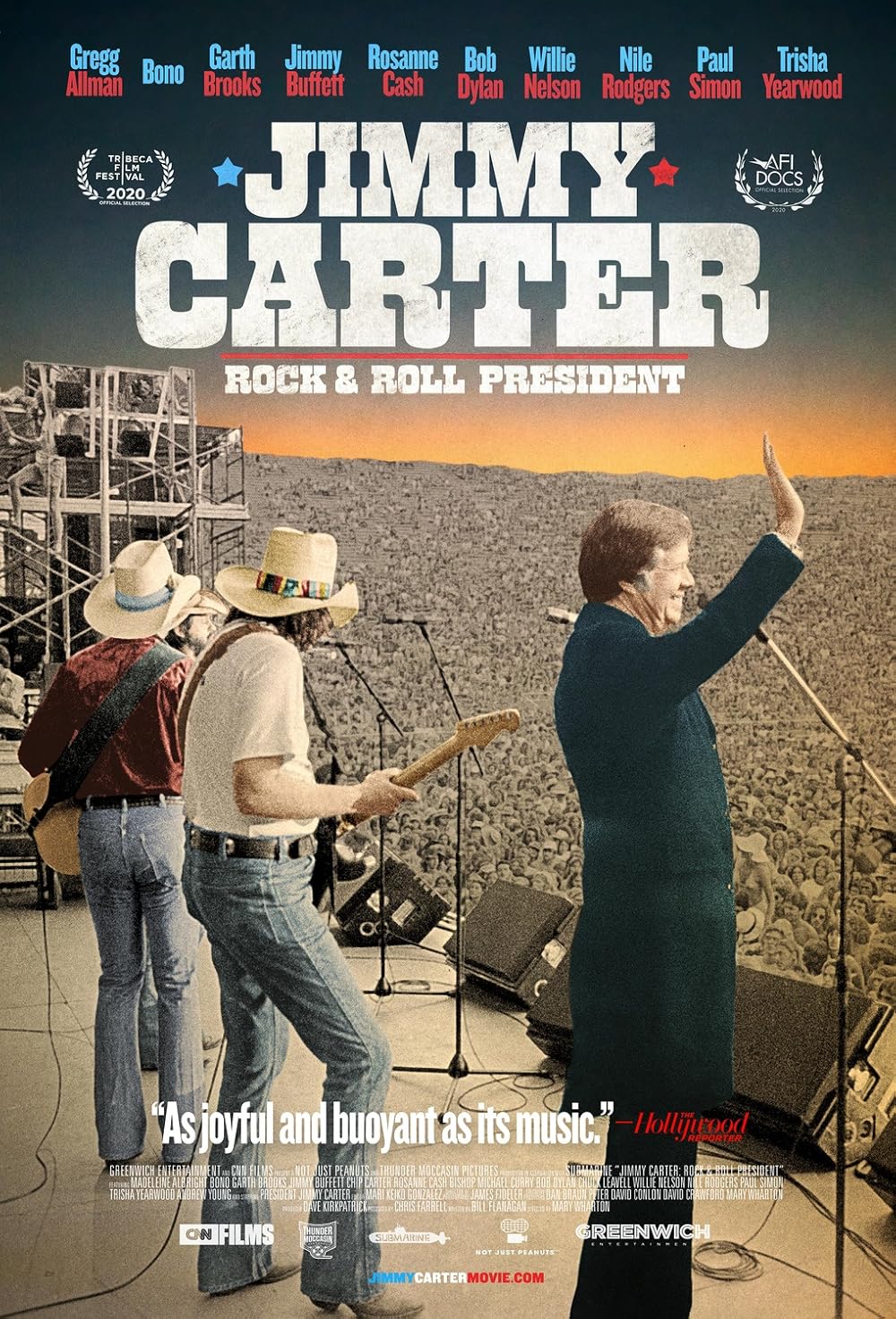The core of Wharton’s film argues that stars like the Allman Brothers, Bob Dylan and Crosby, Stills & Nash, as well as outlaw country artists like Willie Nelson and Johnny Cash, played a crucial role in getting Carter into the White House in 1976. The Allmans took the lead, performing concerts to raise money for his run for the Democratic nomination when he had scant funds and no national name recognition. “I was practically a non-entity,” Carter says in the film. “But everyone knew the Allman Brothers. When they endorsed me, all the young people said, ‘Well, if the Allman Brothers like him, we can vote for him.”
Even so, the power of the youth vote was just being tested at that point. The previous presidential election, in 1972, in which Republican incumbent Richard Nixon squared off against Democrat George McGovern, was the first national election that saw the voting age drop from 21 to 18. Yet, Nixon won in a landslide. Four years later, in a country weary from Watergate and Nixon’s successor Gerald Ford, there was a far clearer mandate for change. “The youth vote that time was massive,” said Chris Farrell, the movie’s producer. “Eighteen- and 19-year-olds voted for Carter. Then it spread way beyond that.”
Though Carter wasn’t especially young at the time, at 52, his team were, led by head press secretary Jody Powell, who was 23, and chief of staff, Hamilton Jordan, then 32. After Carter won the White House, Rolling Stone put the two staff members on their cover, calling them “The White House Whiz Kids”. “They were young people, speaking to young people,” said Farrell.
Still, the level of support the rock stars gave Carter represented something new. In the late 1960s, when rock became the cutting-edge force in pop culture, its stars were more likely to support a vague notion of revolution, while lobbing the occasional epithet at Nixon. “For them to associate with a politician wasn’t seen as cool,” said Wharton.
But by the mid-70s, rock had become more mainstream, and magazines like Rolling Stone were eager to flex their growing power by backing candidates more aggressively. While many politicians were eager to court the icons of the rock generation, Carter had a distinct advantage. “The fact that he was an independent thinker appealed to these musicians,” Farrell said. “He wasn’t just following the party line for politicians for the last 30 years.”
